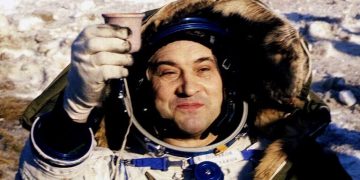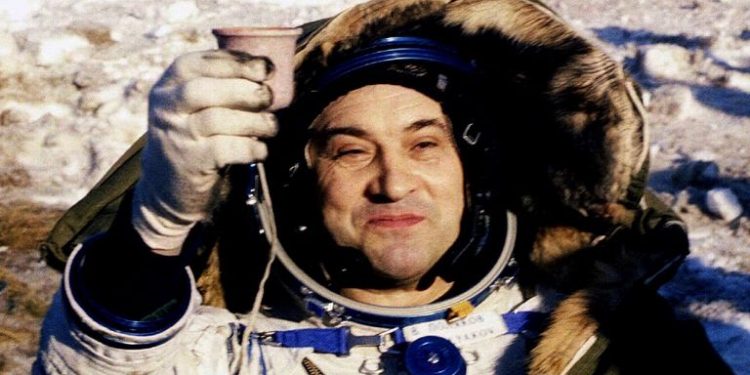By Oyintari Ben
The Russian cosmonaut, Valery Polyakov who set the record for the longest single stay in space, has died aged 80.
On the Mir space station, Valery Polyakov orbited the Earth for 437 complete days between 1994 and 1995.
He conducted tests to determine if travellers could keep their mental health if they were to go far to Mars.
According to tests, his 14-month adventure had no negative effects on his cognitive performance.
The Russian space agency utilized Polyakov’s honorific titles, such as hero of the Soviet Union and pilot-cosmonaut of the USSR, to announce his passing.
There was no mention of Polyakov’s cause of death.
The organization, Roscosmos, noted in a Telegram post that Polyakov’s research had contributed to demonstrating that human bodies could manage journeys into deep space that were well beyond Earth’s orbit.
Polyakov was born in Tula, a city south of the capital Moscow, in 1942. He first earned his medical degree before becoming a cosmonaut.
He spent eight months in orbit after his maiden mission, which was launched in August 1988.
Polyakov’s voyage six years later gave him the title of longest space flight, which he still holds today.
From 8 January 1994 until 22 March 1995, Polyakov spent his time living and working in the Mir space station, reportedly making more than 7,000 Earth orbits.
Later, he claimed that the distance travelled was similar to travelling to and from Mars.
As astronauts reacclimate to gravity on Earth, Polyakov is claimed to have turned down the invitation to be lifted out of his capsule upon his return.
Instead, he used others to help him get out.
In 1986, the Mir space station was launched into orbit, initially under Soviet Union and later Russian sovereignty.
The 135-tonne (135,000kg) satellite was utilized during the Cold War with the Soviet Union and the US working together despite long-standing political disagreements.
Before retiring in 2001, it contributed significantly to our understanding of how humans would be able to live and operate in space.




































